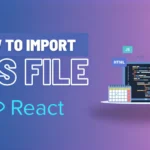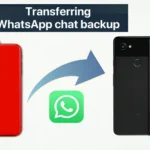What is C in C Programming, The C programming language, commonly referred to as “C,” is powerful and popular. It serves as the foundation for many other programming languages and is widely used in a variety of fields, including system programming, application development, and embedded systems. In this article, we will look at the fundamentals of C programming, including what “C” is and why it is so important in the world of programming.
What is C in C Programming?
- Newer programming languages like Java, C++, and C# have been introduced alongside the long-standing C language. Although they are far larger, many of these new languages are at least partially derived from C. Since it’s easier to learn, it’s preferable to begin programming with the more compact C.
- After mastering the fundamentals of C programming, learning the more recent languages is simpler. For example, learning C++, which is an extension of C, can be challenging if you haven’t mastered C programming first.
- C is still widely used today due to its effectiveness and flexibility, despite the availability of more features in newer languages. Nowadays, it is used on a wide range of platforms, from microcontrollers to the most sophisticated scientific systems. Programmers all over the world use C because it provides them with the most control and efficiency.
The C Compiler
- C programs are saved with a “.c” file extension and are initially created as plain text files. No specialized software is required to write these; they can be written in any plain text editor, like the Windows Notepad application.
- A C program needs to be “compiled” into computer-understandable byte code before it can be run. The program’s original text version is read by a C compiler, which then converts it into a second file with machine-readable executable byte format.
- The compiler will flag any syntax errors in the text program and prevent the executable file from building.
- The GNU C Compiler (GCC), which is freely available under the terms of the General Public License (GPL), is one of the most widely used C compilers.
Features Of C Programming
- Complex virtual problems can be solved using the built-in functions and operators of the C programming language.
- C is a programming language that combines high-level and low-level assembly language. It can be used to write applications and communicate with low-level system memory.
- The flexibility of the C programming language lies in its compatibility with nearly all operating systems and devices.
- The C programming language is faster than others because it has operators and data types.
- Given that C++ is simply an expanded version of C, the C programming language is easily extended.
- This programming language’s libraries support a wide range of operators and functions.
Data Type
| Data Type | Use in C programming Lang. | Size(in bytes) |
| Int | Used to define a whole number. (1,2,3) | 2 or 4 |
| Char | Used for defining individual character. (letters, symbols) | 1 |
| Float | Used to define decimal numbers. | 4 |
| Double | Used for Decimal numbers (For higher accuracy) | 8 |
| Short Int | Used for Small whole number (1, 2, 3) | 2 |
| Long Int | Used for large whole numbers. (100, 102, 200) | 4 or 8 |
| Long long Int | Used for very hard whole numbers. (10001, 50001) | 8 |
| Unsigned Int | For positive whole numbers only. | 2 or 4 |
| Unsigned Char | Used for positive characters only. | 1 |
Conclusion
The foundational language of programming, C has a straightforward syntax, is portable, efficient, and has extensive library support. Acquiring knowledge of C not only gives you useful programming abilities but also opens up a multitude of career options. Knowing the fundamentals of C programming is crucial for developing a strong portfolio of programming skills, regardless of experience level. So explore the world of C programming and discover What is c in c programming!





